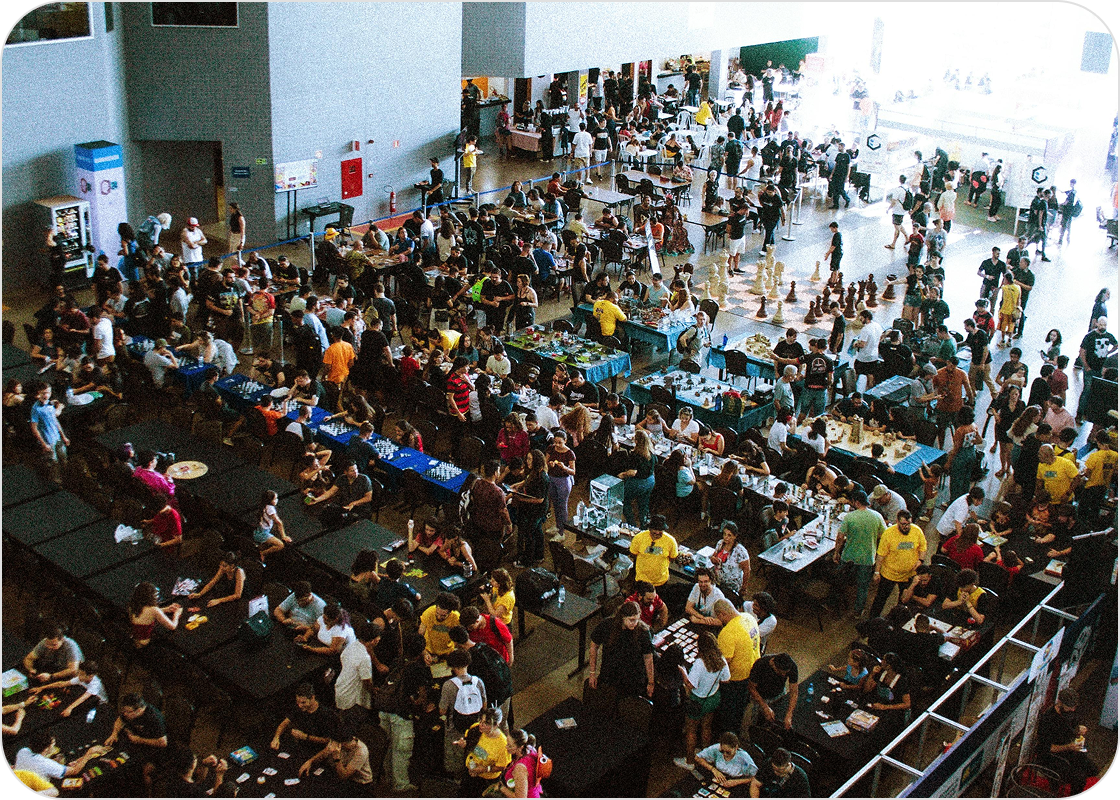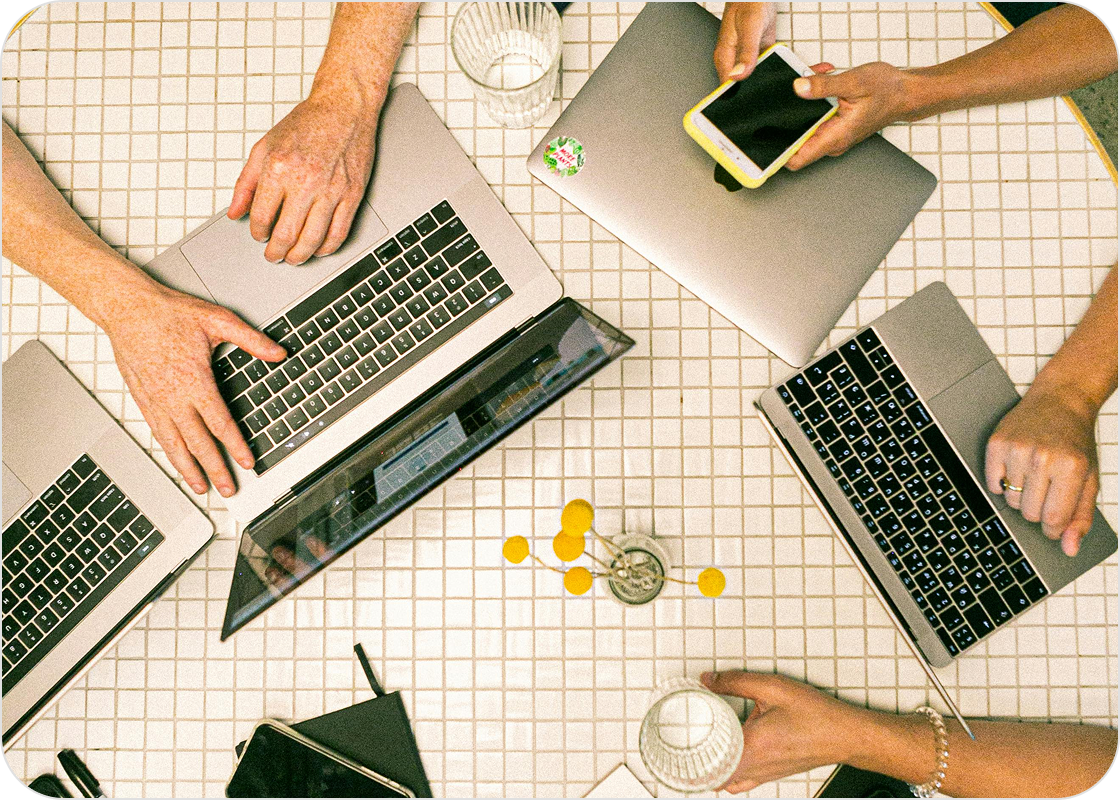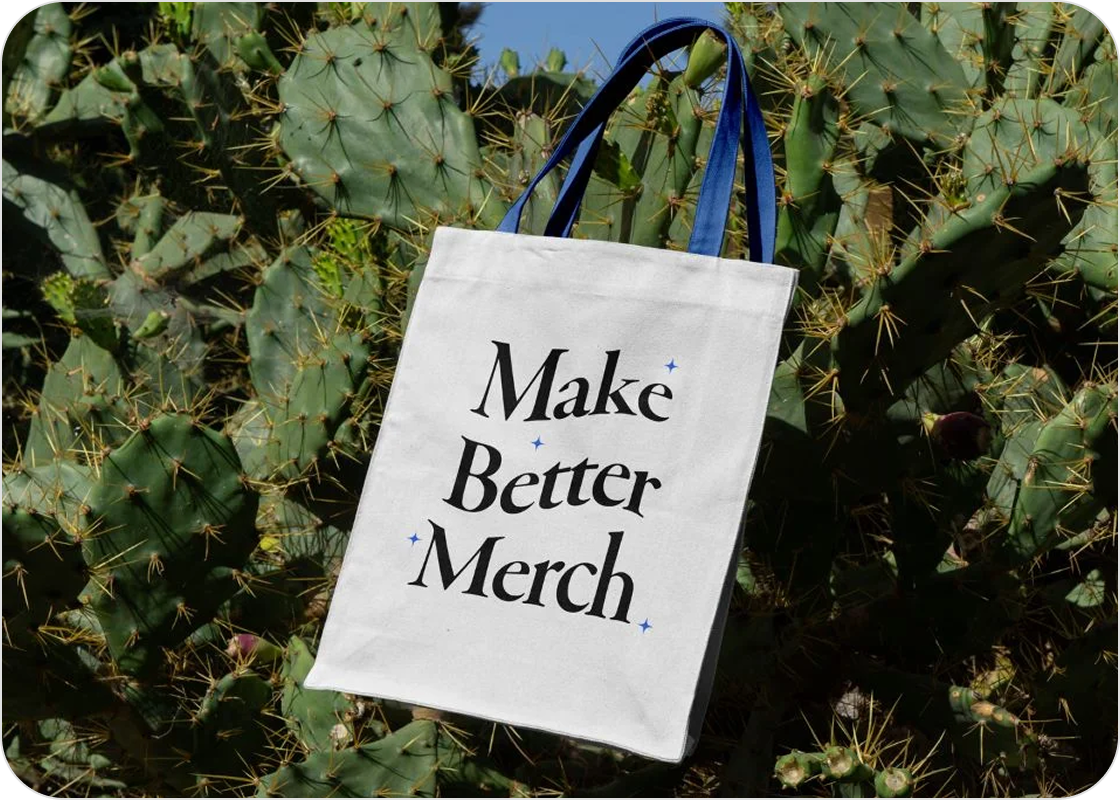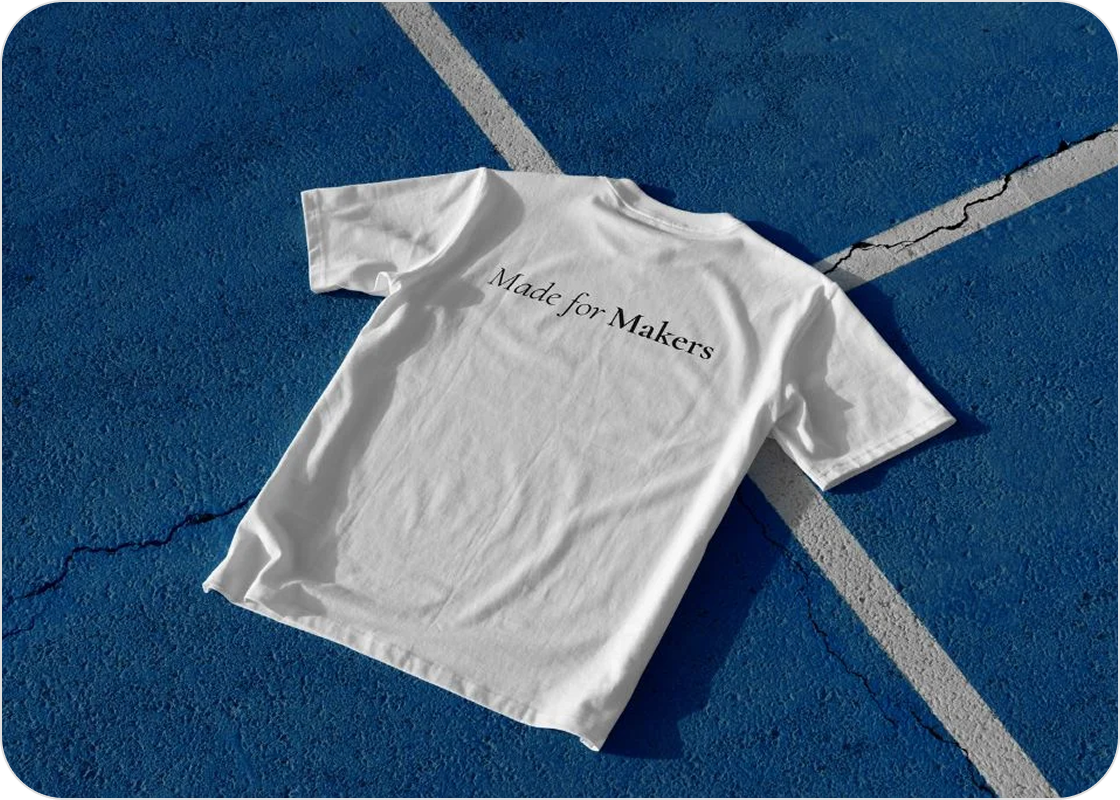4 ways to order custom company merch (+ how to pick the best one)
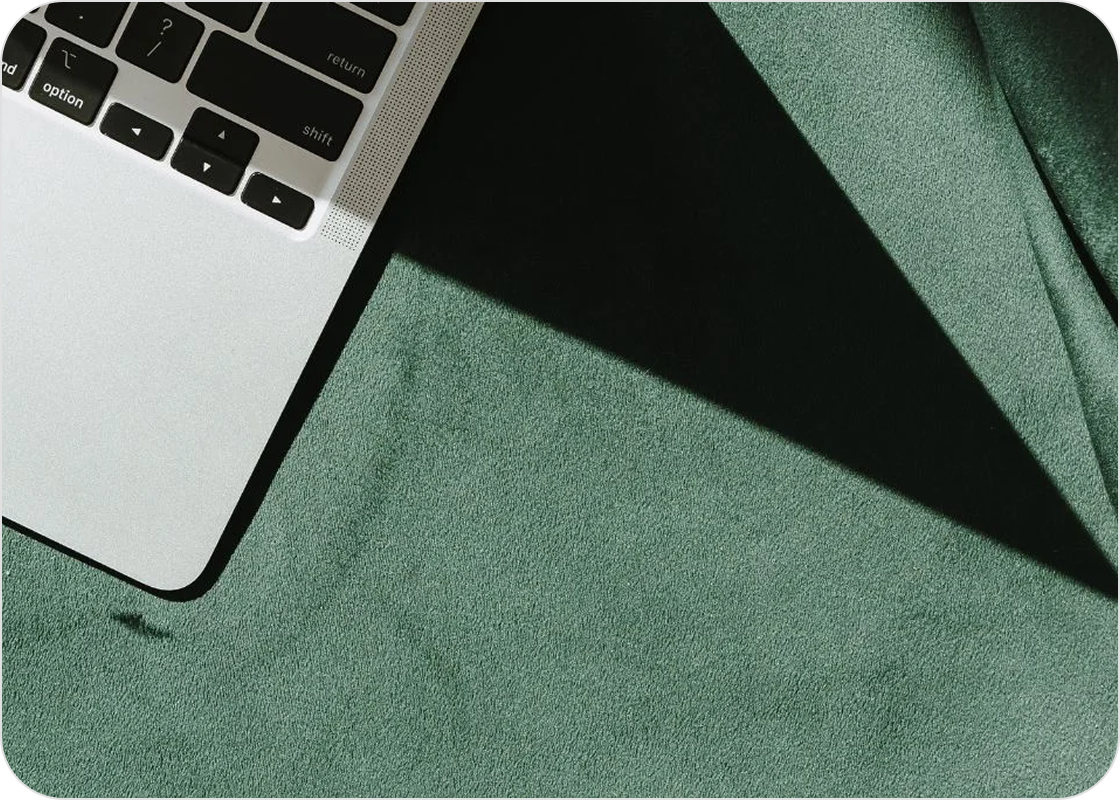
Ordering custom company merch may sound simple – until you realize there are half a dozen completely different ways to get it done, each with its own pricing, timeline, and level of customization.
There’s the streamlined but limited approach, where you can leverage one-click ordering for a single hoodie. Others offer more variety, but require more hands-on involvement, requiring that you fill out spreadsheets and chase down WhatsApp messages from factory reps. A few promise premium quality, but only if you order 500 water bottles at a time.
To help you decide the best option to create your merch, we’ve compiled this guide, which breaks down the four main options for making company merch. Read on to learn more.
Merch manufacturing models: a quick overview
Whether you're ordering products for a team offsite, a product launch, or a client gift drop, the type of vendor you choose will impact everything from product quality to cost and turnaround time.
Here’s how the main merch manufacturing models generally stack up.
1. Print-on-demand platforms
Print-on-demand (POD) platforms are built for speed and simplicity. You upload your logo, choose a product (usually from a catalog of standard “blanks” like mugs, t-shirts, or tote bags), and the platform prints and ships each item only after it’s ordered. There’s no bulk buying, no warehouse full of swag, and no long lead times.
Platforms like Printful and Printify are especially popular with creators and e-commerce sellers because they integrate easily with tools like Shopify and Etsy. Their model makes it easy to launch a store or test a design without ever touching a box.
While POD wasn’t designed with company merch in mind, some companies use it for low-lift, one-off needs, like sending a tee to a new hire or mailing a mug to a remote client.
Pros of print-on-demand
- No minimum order quantity: Start with just one item. Great for testing a design or sending a quick, one-off gift.
- Easy to use: Most platforms are self-serve, with design previews and simple checkouts.
- Fast turnaround: Orders are typically fulfilled in U.S.-based facilities and ship within 1-2 weeks.
Cons of print-on-demand
- Higher per-unit pricing: POD is cost-effective for one or two items, but gets pricey fast if you order in bulk.
- Limited product variety: Most POD catalogs stick to standard products rather than trendy or premium-feel options.
- Little to no control over specific customization details: You're locked into specific print methods and placements, with few options for materials, finishes, or branding touches like tags or packaging.
- Quality can be unreliable: Items can vary a lot depending on the supplier or print method.
Who is print-on-demand best for?
- One-off gifts for new hires, clients, or quick wins
- Testing out a design before a bulk run
- Teams that need company merch fast and are okay paying more for the convenience
- Independent artists or small brands who want to sell their designs without carrying inventory
- Creators who want to start a dropshipping business
2. Domestic bulk merch platforms
This model is all about ordering larger quantities of company merch from U.S.-based vendors. Platforms like Custom Ink, 4Imprint, and Vistaprint have helped businesses make a lasting impression at job fairs, conferences, and trade shows for decades.
With this option, you typically pick from a fixed catalog, upload your logo, and get everything shipped to one address in bulk. They're designed for simplicity at scale, with an emphasis on classic, no-frills products like polos, pens, and water bottles.
Pros of domestic bulk merch platforms
- Predictable lead times: Since production happens domestically, shipping is fast, and timelines are pretty reliable.
- Decent quality: Most platforms stock familiar brand-name products sold by retailers (like Yeti tumblers or Moleskine notebooks), so quality tends to be predictable.
- Bulk discounts available: At higher order volumes, per-unit costs drop a bit.
Cons of domestic bulk merch platforms
- Pricier than overseas options: Even with volume discounts, prices are often higher than what you’d pay working directly with a factory abroad.
- Traditional product catalogs: Products in the catalog are often less trendy and modern.
- Potentially lower-quality blanks: While brand-name items offer consistency, many domestic bulk platforms also carry cheaper, basic unbranded products that can feel flimsy or dated.
- Limited customization: Most platforms let you upload your design to a fixed print area and choose from basic methods like screen printing or embroidery, but don’t expect custom labels, unique cuts, or special finishes.
Who are domestic bulk merch platforms best for?
- Teams that want bulk orders of branded basics
- Events with tight timelines where speed and quantity are a priority
- Companies that don’t mind paying a bit more to avoid the complexity of overseas sourcing
3. Overseas sourcing marketplaces
Overseas sourcing marketplaces like Alibaba and SourceReady connect you directly with manufacturers in China, India, and other major production hubs so you can create fully custom products from scratch.
With direct access to thousands of factories, you enjoy endless variety – from insulated tumblers to LED desk vacuums – often at a fraction of domestic pricing.
That said, you’re essentially managing your own global supply chain, including handling quotes, communication, production timelines, freight, and customs. It’s doable, but it can be time-consuming and stressful.
Pros of overseas sourcing marketplaces
- Extremely competitive pricing: You’re working factory-direct, which means wholesale pricing and major cost savings at scale.
- Huge selection of products: If you can dream it, you can probably source it.
- High flexibility and customization: You can usually request custom materials, shapes, packaging, and more.
Cons of overseas sourcing marketplaces
- Clunky and hands-on ordering process: You or a team member will have to manually juggle quote requests, sample approvals, and supplier follow-ups across multiple platforms or email threads. Between language barriers and time differences, even simple requests can turn into weeks- or even months-long back-and-forths.
- Few automation or design tools: Most platforms don't offer design previews, instant checkout, or built-in branding tools. You’ll be managing specs, files, and logistics on your own.
- Long lead times: Standard production timelines run 3-6 weeks, and international shipping (plus customs) can tack on at least another month, if not more.
- High minimum order quantities: Many factories require 500+ units per item to even start a production run.
Who are overseas sourcing marketplaces best for?
- Multilingual operations or procurement teams with global sourcing experience
- Brands that need full creative control (e.g., custom shapes, finishes, packaging)
- Price-sensitive sellers – like Amazon sellers – who prioritize lowest-cost production
- Teams with longer timelines and the bandwidth to either manage the process manually or work with a sourcing agent that can handle vendor outreach, quality control, and shipping.
What SourceReady helps you achieve
SourceReady is one of the most convenient online marketplaces for overseas sourcing. With it, you can:
- Find the right suppliers faster: Discover high-quality suppliers that match your exact needs – no more sifting through endless directories or unreliable leads.
- Reduce tariff risks and diversify your supply chain: Quickly shift sourcing to trusted suppliers outside high-tariff regions, protecting your margins and avoiding disruptions.
- Save time and secure better deals: Their AI agent handles supplier outreach, communication, and negotiation across time zones – so you can focus on scaling your business while deals move forward automatically.
⚡ Not sure how to get started with overseas sourcing? Learn how to pick a quality overseas manufacturing partner.
4. Wayo, an AI-powered product sourcing platform
Wayo is an AI-powered solution that combines the ease and automation of domestic merch platforms with the pricing and product variety of overseas sourcing.
We partner directly with trusted factories that produce high-quality products efficiently, which means we can offer ultra-customizable, on-trend products that you won’t find on traditional merchandise sites.
But unlike overseas marketplaces, you don’t have to manage quotes or production yourself. Wayo’s self-serve platform and all-in-one dashboard are built to simplify the entire process. With Wayo, you can:
- Customize products effortlessly with our Merch Design Studio, with realistic previews that help you visualize the final product and instant quotes that automatically update as you design.
- Track everything in one place using our all-in-one dashboard, including quotes, production details, shipping information, and invoices.
- Request fully custom products with Nory, our AI Sourcing Agent. Just share what you’re looking for, and our team will help you find the right supplier to make it happen.
- Spin up new ideas fast using our AI Merchline Generator, which can generate product concepts and branded mockups in seconds.
Pros of Wayo
- Factory-direct pricing: By cutting out the middleman and working directly with manufacturers, we deliver high-quality company merch that’s typically 30-50% cheaper than most domestic platforms.
- Trendy products with extensive customization options: From mini fans to custom-shaped pillows, our product catalog consists of hundreds of curated products, both trendy and traditional.
- Self-service design and checkout tools: You can customize products, preview designs in real-time, and check out without hopping on a sales call or starting an email chain.
- Low minimums: Enjoy the cost savings of overseas sourcing without needing to commit to massive orders – while our minimum order quantities (MOQs) are higher than POD solutions, our MOQs are as low as 20-100 for most of our catalog products – a number that is lower than most factories are willing to offer.
- Fast turnaround: Our 2-week starting lead times are way faster than traditional overseas timelines. Finished products are shipped directly from the factory to your doorstep.
Cons of Wayo
- Limited product count: We’re still growing, so our catalog isn’t as deep as some of the larger players. But that’s by design – we prioritize finding quality, on-trend products over flooding the site with thousands of options.
- Not for ultra-small orders: Wayo is built for bulk, not one-offs, so if you only need a few items, you’ll want to look at POD options instead.
- Slower lead times than domestic production: Most Wayo orders are delivered within as quickly as 2 weeks, which is quick for overseas production but not ideal if you need something ASAP.
Who is Wayo best for?
- Anyone who wants premium company merch without premium-level costs
🚀 Make better merch, faster and more easily. Learn how Wayo makes it easy to bring your custom product to life.
The best merch option depends on you
Each merch model has its pros and cons, but if you’re looking for quality, affordability, and ease in one package, Wayo is designed for exactly that. It’s the smartest way to source company merch that’s genuinely worth keeping.
Create extraordinary merch with Wayo
Explore a curated catalog of ready-to-customize products, with low minimums starting at 20-100 units and 2-3 week global shipping.
